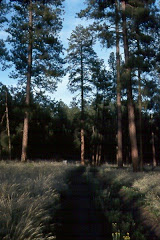
The week has been beautiful, but alas today’s clouds foretell a bit of a change (see photo). I did hear and see a red tail hawk, listen to the crows on chase, and momentarily watch a flicker feed. I was working on the road this morning patching holes here and there. I miss the feel of being outside and it felt so good to be outside. My daily work regimen is normally on the computer exploring geographic data bits and images using Environmental System Research Institute’s ArcGIS software. I do like and follow technology closely albeit at times I wonder how our biological heritage will mix with mechanical makings. Speaking of mechanical makings though, yesterday a friend called and we somehow got on the subject of American-made products and specifically talked of two products from Bradford, Pennsylvania – Zippo lighters and Case knives. I’ve never really owned a Zippo lighter per se, but like a lot of people I’m sure I’ve used them many a time when in need of fire. They were always dependable. As for Case knives that is a different story. I have owned many a Case pocket knife and still do. The story behind the story is that my Father schooled me in the use of knives at a young age starting with Mumblety-peg ( and no I never stuck my foot with a knife although I came close). I’m not real certain of why my Father loved knives, but I’m sure it related to hunting. Interestingly he made sure that I knew how to use (and sharpen) a pocket knife, a two-bladed Case knife, that I would use to field-dress a deer (and other four-legged critters). He always said that you did not need a bowie knife to do the job just a small pocket knife with a blade that could shave the hair on your hand. Although I could handle a knife I never really was the ultimate outdoorsman, but let’s just say I never was at odds with the woods either. And I suppose that why I’ve made it back around to the reason for writing this post. You see we have more than a few deer out our front door now. They are a pretty species that I never tire of watching, but just as humans are impacting the planet, so too are the whitetail deer populations. Therein lays one chapter in a long story about our natural systems being just a bit out of sync – they’ve lost their natural integrity. Now I do not really believe that we can return to the old days, old ways, and old landscapes. But I do feel that there are ecologists and geographers and other natural resource professionals out there that have valid and critical views on the state of the world.

My parochial view for this relatively minor part of the world is that ideally we may need at some point to delineate relatively naturally occurring ecosystems that we can target for insisting that natural populations, to the extent possible, be safeguarded and even re-introduced if necessary, to return to some semblance of a functioning ecosystem. Hunting and fishing, albeit at times their own worst enemy, still remain as viable tools in a toolbox of land management options within that ecological matrix.
Land Ethic
The land ethic simply enlarges the boundaries of the community to include soils, waters, plants, and animals, or collectively: the land.
This sounds simple: do we not already sing our love for and obligation to the land of the free and the home of the brave? Yes, but just what and whom do we love? Certainly not the soil, which we are sending helter-skelter downriver. Certainly not the waters, which we assume have no function except to turn turbines, float barges, and carry off sewage. Certainly not the plants, of which we exterminate whole communities without batting an eye. Certainly not the animals, of which we have already extirpated many of the largest and most beautiful species. A land ethic of course cannot prevent the alteration, management, and use of these 'resources,' but it does affirm their right to continued existence, and, at least in spots, their continued existence in a natural state.
Leopold, Aldo: A Sand County Almanac, and Sketches Here and There, 1948, Oxford University Press, New York, 1987, pg. 204.


No comments:
Post a Comment